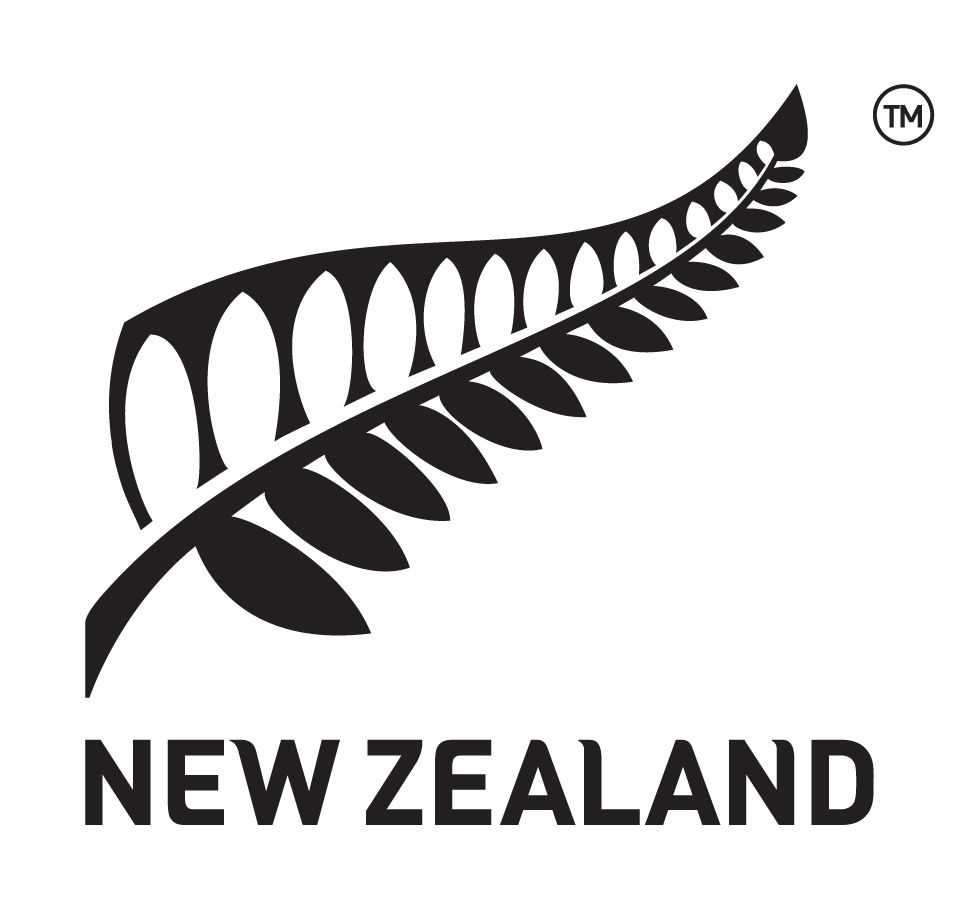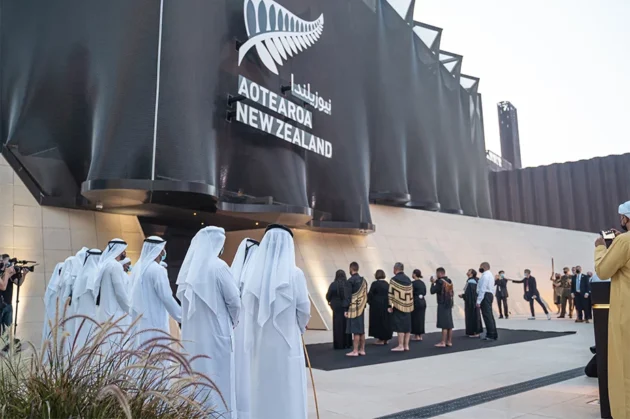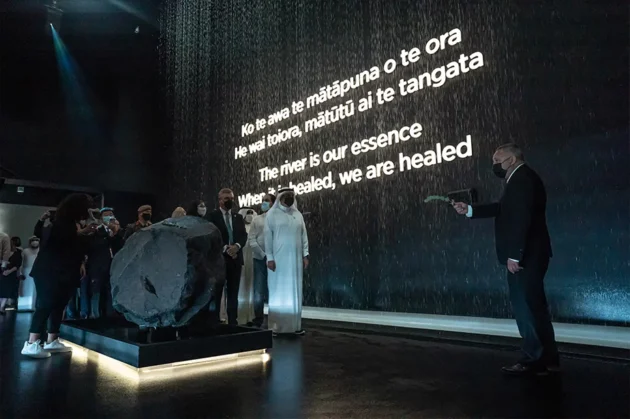Of all the deviations from common sense being committed by this apology for a government we’ve inflicted on ourselves, the latest has been the deliberate attempt to denigrate our long-established and widely respected international brand name, New Zealand, by prefixing it with the mythical Maori term, Aotearoa.
What this demonstrates is that, as well as its ignorance of the basic principles of democratic governance as evidenced by its He Puapua plot, this government is similarly unaware of well-established principles of marketing. It is desecrating our brand name with the addition of a name that might as well be Abyssinia, for all Aotearoa might mean to our customers in the 100-plus countries of the world who buy the food and beverage exports that have for so long underpinned our economy.
The latest sorry example of this ignorance has been in the news with the visit of our Minister for Foreign Affairs, Nanaia Mahuta, to the New Zealand Pavilion at the World Expo in Dubai. It’s not just the titling at the entrance, “Aotearoa New Zealand”, but the deliberate downplaying of the objective – in an exercise that cost a reported $63 million of our taxpayers’ money – which in the words of its official website says:
The architectural concept for the pavilion was inspired by waka taonga, receptacles made by Maori, the indigenous people of New Zealand, to safe-guard items of considerable intrinsic value. The beautifully carved containers called waka huia and papahou, are important cultural symbols for protection and the maintenance of values and practices. They were gifted to strengthen relationships, create new partnerships and maintain traditions and stories from one generation to the next.
The pavilion is New Zealand’s waka taonga – a receptacle for essential aspects of our identity and values. The design uses the waka taonga as a way of bringing people together, and it reflects the ‘Connecting Minds, Creating the Future’ theme of Expo 2020 Dubai. New Zealand’s gift to the world is our kaitiakitanga, our Care for People and Place.
All very well, but what’s the point of spending $63 million to tell the world about our kaitiakitanga when we should be using this opportunity, as we have in past expos, to promote the range of quality things to eat and drink that we produce on our farms, in our orchards and vineyards and in our seas. Kaitiakitanga puts nothing on the dining tables of the world, and certainly nothing in our export receipts bank accounts.
In 1992, as the result of arranging for complimentary wines of New Zealand to be served within, I had the privilege of attending the New Zealand Pavilion at Seville in Spain. Certainly, Maori cultural performances featured in the ceremonies to open that pavilion, but its day-to-day focus was the promotion of our primary product exports, and our wines proved to be a hit attraction. Word soon got around that a taste of New Zealand was a must-have experience.
For all the high sounding pseudo-themes (e.g., “Connecting Minds, Creating the Future” in Dubai), these world expos are basically marketing exercises, selling the goods and services of the nations which choose to be represented. The hundreds of thousands who attend have to be enticed to enter. How much more effective our Dubai presence might have been if our entrance read:
Welcome to the Taste of PURE NEW ZEALAND
Especially as we know that the purity of our products is something customers can experience when they taste them.
Sad then that this opportunity for a Covid-distracted world to be reminded of our leadership in taste preferences was squandered.
When our international trade returns to normal, as we hope and pray will occur next year, we can only hope that our customers will again seek out the brand in which they know they can have complete confidence: New Zealand.
That branding must be Pure New Zealand. Just those three words. I know that they originated with the NZ Tourism Board in 1991 as “100% Pure New Zealand” and it was an immediate and resounding success, helped by the Lord of the Rings films.
If tourism wants to retain the “100%” pre-fix, fine; but “Pure” on its own as an adjective is a superlative, and certainly applies to our foods and beverages.
And it’s important to continue to hammer that message, over and over again. Back in the early ’90s when I was still involved in commerce the book Reality in Advertising by Rosser Reeves was recommended to me; it has since become regarded as one of the best on the subject.
One point stressed by author Reeves that I never forgot was the vital importance of long-term repetition of a strong message or trademark.
We must never forget that English is the language of international marketing. The quote below dates back to 2012, but is probably even more true today:
Ready or not, English is now the global language of business. More and more multinational companies are mandating English as the common corporate language—Airbus, Daimler-Chrysler, Fast Retailing, Nokia, Renault, Samsung, SAP, Technicolor, and Microsoft in Beijing, to name a few—in an attempt to facilitate communication and performance across geographically diverse functions and business endeavour.
https://hbr.org/2012/05/global-business-speaks-english
As someone of proud Irish descent, and well aware of the name “Erin” as a synonym for the land of my ancestry, I have no objection to the use by Maori (or anyone else in proper context) of Aotearoa as a poetic or artistic or reo synonym for New Zealand (indeed we all sing it lustily as the final word of the Maori version of our national anthem). But when we are dealing with the rest of the world, we need to see (and say) our country as they see (and say) it: New Zealand.
When our great New Zealand soldier, Bernard Freyberg was elevated to the peerage in 1951 he chose as his baronial motto “New Zeal and Honour”. “Zeal” is a good word, especially as it is the most stressed in pronouncing our country’s name. Time maybe to upgrade the subscript of our national coat-of-arms to:
New Zeal and Reality
Please share this BFD article so others can discover The BFD.



